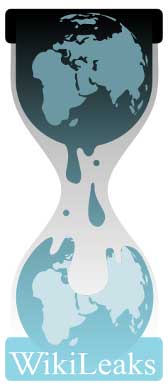Why I Nominated Wikileaks For The Nobel Peace Prize
By Snorre Valen
03 Februar, 2011
Snorrevalen.no
 It is always easier to support freedom of speech when the one who speaks agree with you politically. This is one of the “tests” on liberal and democratic values that governments tend to fail. For instance, western governments have a long history on tolerating oppressive regimes that are “friendly-minded”. Internet companies assist China in censoring search engines. And many countries respond to Wikileaks‘ obvious right to publish material that is of public interest, by seeking to “shoot the messenger”.
It is always easier to support freedom of speech when the one who speaks agree with you politically. This is one of the “tests” on liberal and democratic values that governments tend to fail. For instance, western governments have a long history on tolerating oppressive regimes that are “friendly-minded”. Internet companies assist China in censoring search engines. And many countries respond to Wikileaks‘ obvious right to publish material that is of public interest, by seeking to “shoot the messenger”.
Publishing material that is deemed classified by the government is an obvious right that newspapers and media have practiced for many, many decades. This way, the public has become aware of abuses of power that governments should be held accountable for. The internet doesn’t change this – it merely makes information more accessible, easier to distribute, and more democratic in the sense that virtually anyone with an internet connection can contribute.
Nevertheless, many seek to redraw the map of information freedom with the emergence of institutions like Wikileaks. Political powers and institutions that ordinarily protect freedom of speech suddenly warn against the danger, the threat to security, yes even the “terrorism” that Wikileaks represent. In doing so, they fail in upholding democratic values and human rights. In fact, they contribute to the opposite. It is not, and should never be, the priviledge of politicians to regulate which crimes the public should never be told about, and through which media those crimes become known.
Liu Xiabao was awarded the Nobel Peace Prize last year for his struggle for human rights, democracy and freedom of speech in China. Likewise: Wikileaks have contributed to the struggle for those very values globally, by exposing (among many other things) corruption, war crimes and torture – some times even conducted by allies of Norway. And most recently: By disclosing the economic arrangements by the presidential family in Tunisia, Wikileaks have made a small contribution to bringing down a 24-year-lasting dictatorship.
It would be a crime to ban or oppose the right to publish such information. It should instead be protected, regardless of what we might think of the contents of some (or even all) of the published material. I am proud to nominate Wikileaks for the Nobel Peace Prize.
Snorre Valen, Member of Parliament / Stortinget
Comments are not moderated. Please be responsible and civil in your postings and stay within the topic discussed in the article too. If you find inappropriate comments, just Flag (Report) them and they will move into moderation que.


